The faculty of the School of Philosophy and Letters meets in a workshop of work on innovation and teaching in Olza
The meeting was held at the end of August and was attended by about fifty people.
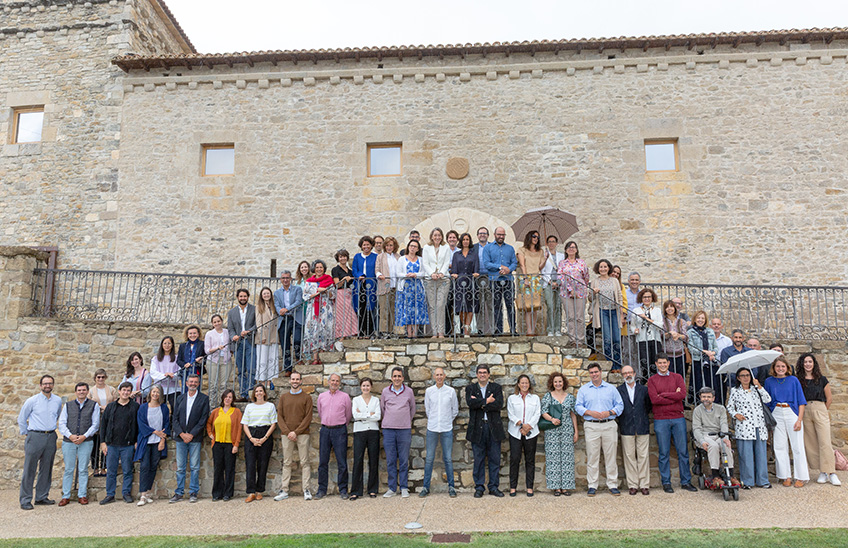
The Palacio de Olza has been, for the second year, the venue of a workshop of work on innovation and teaching in which fifty professors from the University of School of Philosophy and Letters of the University of Navarra. It took place on August 28 and was an opportunity to take stock of the previous year and prepare for the new academic year.
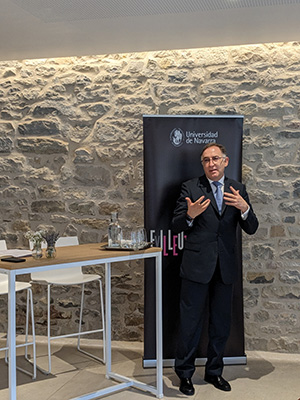 The meeting, chaired by Julia PavónThe event, dean of the School, began with the intervention of Secundino FernándezVice President of Office of Academic Affairs of the University. In his exhibition, he defended the need to "increasingly professionalize the task professor" and appealed to the motivation and linkage with the project educational of the academic center. He also alluded to one of the axes of the Strategy 2025 of the University of Navarra, Education transforming: "Transformation, which has to do fundamentally with people, must bring about an improvement and each one of us has to see how we assume it, through the acquisition of new competencies, which are always called to action".
The meeting, chaired by Julia PavónThe event, dean of the School, began with the intervention of Secundino FernándezVice President of Office of Academic Affairs of the University. In his exhibition, he defended the need to "increasingly professionalize the task professor" and appealed to the motivation and linkage with the project educational of the academic center. He also alluded to one of the axes of the Strategy 2025 of the University of Navarra, Education transforming: "Transformation, which has to do fundamentally with people, must bring about an improvement and each one of us has to see how we assume it, through the acquisition of new competencies, which are always called to action".
Professor Fernandez also stressed the need for teachers to reflect on their research and their activity and to draw applicable conclusions. In this sense, he encouraged sharing the knowledge with others: "Reflection on one's own activity also requires a exchange with colleagues, directors, managers... Meeting at a workshop like this to reflect on one's own activity and research and draw conclusions that allow feedback, in order to prioritize and see how projects are executed is a good way to start the course," he concluded.
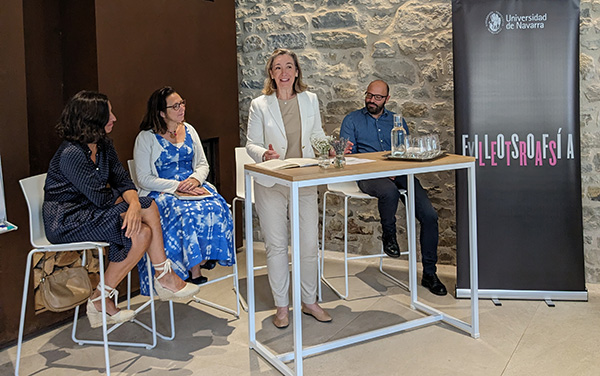
Afterwards, the board board of directors of the School shared with the attendees the actions and projects carried out during the last academic year, as well as the objectives set for the academic year that is beginning. In line with what was expressed by the Vice President, Cristhian Mestre, director of development of the School, exposed some of the actions carried out by the faculty and that have contributed to the training and transformation of people: the more than 80 sessions that different teachers taught in educational centers during the 2022-23 course; the launching of the new Master's Degree in Christianity and Contemporary Culture, which has more than 60 students; or the involvement professor in the curricular trips organized in the Degrees.
As the dean pointed out, "all this has been possible thanks to work as a team, especially reflected in the commissions of teaching", the results of which were presented by Cristina Tabernero, vice dean of Office of Academic Affairs. In line with what the dean said, Professor Tabernero assured that "it is a great satisfaction to be able to work as a team, something for which the students are grateful, and to be able to see the results of this work". In this sense, Pablo Cobreros, Associate Dean of research and postgraduate program, stressed the need to have spaces where the topics of research on which we are working are communicated: "It is essential to communicate our research so that colleagues know about it and thus be able to establish synergies".
For her part, Dolores López, Vice Dean of Students, thanked the professors for their involvement in accompanying the students, as reflected in the survey Satisquestion satisfaction survey. Last year, the evaluation of the knowledge (4.4) and the dedication (4.2) of the professors of the School of Philosophy and Letters was higher than the average of the University of Navarra, as she pointed out. On the other hand, he alluded to the new challenges facing students, "with an increasingly varied profile , not only because of their origin, but also because of their personal circumstances". In this sense, he thanked the tools that the University makes available to professors to accompany students, "such as Compass, the Guidance and Welfare Unit, or the Tu&Co program".
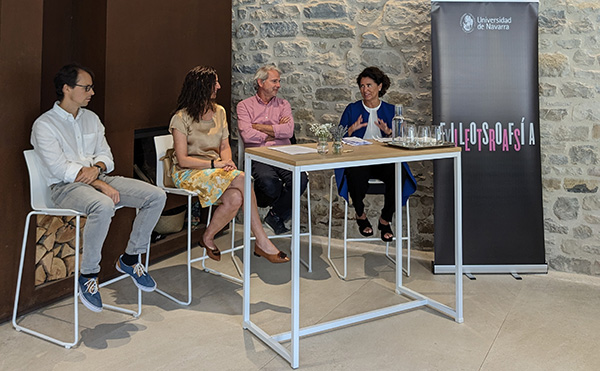
This was followed by a roundtable on"The university professor today", with the participation of Javier de Navascués, Full Professor of Spanish-American Literature; Marta Carrasco Ferrer, professor of Art History at the Universidad Camilo José Cela (Madrid); Carolina Montoro, professor of Geography; and Alejandro Martínez Carrasco, professor of Philosophy. Among other issues, during the discussion, they talked about the challenges faced by professors; alluded to the development of professor innovation projects; defended the richness of the variety of profiles among the faculty; appealed to the need to awaken interest and concerns in students; and recalled that teaching is important, but that research is constitutive of the work of the university professor.
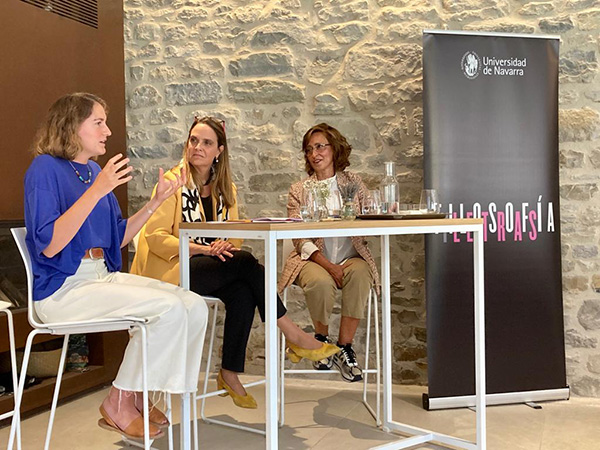
The workshop ended with a second roundtable which addressed the"Models and challenges of learning". Speakers included Ana Mª Calvo Revilla, Professor of Literary Theory and Comparative Literature at the Universidad San Pablo CEU (Madrid); Pepa Sánchez de Miguel, Director of the Quality and Innovation Service; and Almudena Uclés, Student Delegate of the School of Philosophy and Letters.
In her closing remarks, the dean recalled that "we have a transcendent conception of teaching and that is that above changes and challenges, we care about people. The student is a central part of our work". He also stressed that, "in addition to the passion that each of us has for our discipline, we must be committed to innovation in our teaching, because it matters to us". Finally, he recalled the importance of listening: "We must continue to listen to each other.
